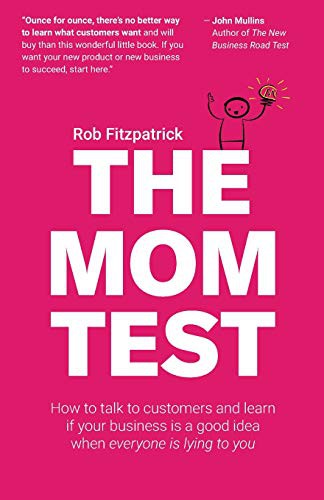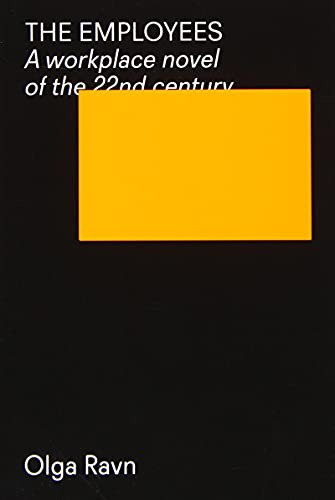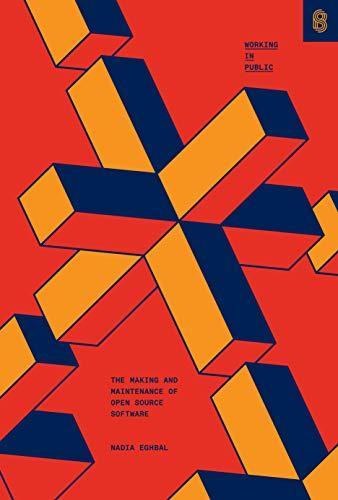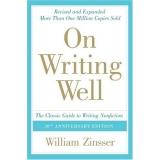"God, you're such a glass-is-half-empty kind of person. Tell me something positive about this book."
me: "It only took 2 hours to read and now it's over."
Reviews and Comments
I struggle to read fiction.
This link opens in a pop-up window
Steven Deobald rated The Three-Body Problem: 4 stars

The Three-Body Problem by Liu Cixin (Three-Body Trilogy, #1)
Within the context of the Chinese Cultural Revolution, a military project sends messages to alien worlds. A nearby alien society …
Steven Deobald rated Lessons in Chemistry: 1 star
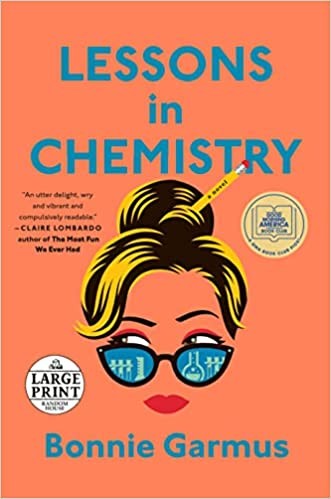
Lessons in Chemistry by Bonnie Garmus
Chemist Elizabeth Zott is not your average woman. In fact, Elizabeth Zott would be the first to point out that …
Steven Deobald rated Butter Honey Pig Bread: 3 stars

Butter Honey Pig Bread by Francesca Ekwuyasi
Spanning three continents, Butter Honey Pig Bread tells the interconnected stories of three Nigerian women: Kambirinachi and her twin daughters, …
Steven Deobald rated Start Simple: 5 stars
Steven Deobald rated Tomorrow, and Tomorrow, and Tomorrow: 4 stars

Tomorrow, and Tomorrow, and Tomorrow by Gabrielle Zevin
In this exhilarating novel, two friends--often in love, but never lovers--come together as creative partners in the world of video …
Steven Deobald reviewed The Employees by Olga Ravn
Review of 'The Employees' on 'Goodreads'
1 star
Steven Deobald reviewed S. N. Goenka by Daniel Stuart
Review of 'S. N. Goenka' on 'Goodreads'
1 star
There once was a field mouse convinced he could become an elephant. For many years, the mouse went to great lengths to learn about the elephants, watching them from the grasses, imitating their movements, and even learning to understand their languages. In the barn, he found an open can of grey paint and decided to make his final transition. After soaking in oil paint for days, he returned to the burrows.
"Behold! I have become an elephant!" he proclaimed. Some of the other mice were very impressed and sat in rapture, listening to his stories of what the life of an elephant was like.
Emboldened by a long night of story telling, he once again returned to the grasses. This time, however, he approached the elephants in the field and proclaimed himself one of their own. But they could not hear him.
Steven Deobald rated Refactoring: 4 stars
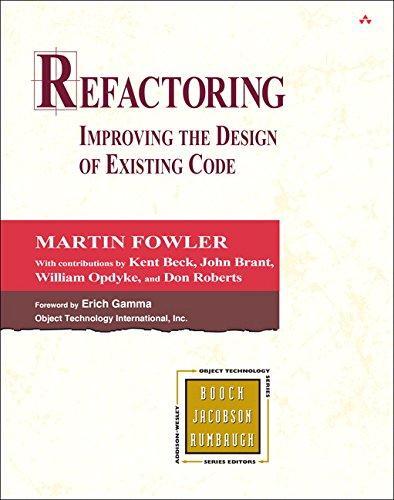
Refactoring by Martin Fowler, Kent Beck, John Brant, and 2 others
Steven Deobald reviewed Freedom from the Known by Jiddu Krishnamurti
Review of 'Freedom from the Known' on 'Goodreads'
4 stars
I find it interesting how substantial Krishnamurti's readership and following is, despite the difficulty of the material he produced. The immediacy of timeless states, the awareness of anatta, and the penetration of sensation by deep meditation — none of these things is easily accessible. None can be learned from a book and Krishnamurti points out as much. It is a testament to his clear writing and the evocation of familiar analogs that a lay person is able to read his work at all.
Review of 'Weinberg on Writing: The Fieldstone Method' on 'Goodreads'
2 stars
I'm in a peculiar situation with this book. I'm actively recommending it to people... but I'm also giving it two stars. I'll try to explain my reconciliation process.
The ideas in this book are coherent. Many of Weinberg's suggestions are techniques I've gleaned from other sources and the stories, suggestions, and exercises are all worth working through. It's a light read and the entire book is easy to digest.
So why two stars? The writing is just not very good. It's not terrible. But for a book about writing it feels like there should be more to this little pamphlet. The transitions are not arresting, but there is grit in the derailleur. His ideas are sound, but they do not read as a continuum. It's perhaps a genius form of self-reference that his book feels like running one's hand over a fieldstone wall ... but I'm guessing that wasn't intentional. …
I'm in a peculiar situation with this book. I'm actively recommending it to people... but I'm also giving it two stars. I'll try to explain my reconciliation process.
The ideas in this book are coherent. Many of Weinberg's suggestions are techniques I've gleaned from other sources and the stories, suggestions, and exercises are all worth working through. It's a light read and the entire book is easy to digest.
So why two stars? The writing is just not very good. It's not terrible. But for a book about writing it feels like there should be more to this little pamphlet. The transitions are not arresting, but there is grit in the derailleur. His ideas are sound, but they do not read as a continuum. It's perhaps a genius form of self-reference that his book feels like running one's hand over a fieldstone wall ... but I'm guessing that wasn't intentional. Brilliant writing feels smooth and worn, like the plaster of some Mughalai palace. He never quite achieves that.
I will continue to recommend this book, under two conditions. One, it must be paired with Clear and Simple as the Truth. Two, it should be digested as a textbook. Clear and Simple is sufficiently pretentious that The Fieldstone Method will feel refreshing afterward — but more like a mug full of lukewarm water while re-shingling your house in cloudless July than a gin and tonic on the porch. Still, worth reading.
Review of 'Summary : Atomic Habits' on 'Goodreads'
1 star
one point… five stars?
another one of those books with great insights that could easily be delivered on a single A4 sheet of paper.
no one makes the nyt best sellers list that way, though.
not painful like “why we sleep” but a pretty boring read.
Steven Deobald rated The quiet mind: 5 stars
Steven Deobald reviewed Working in Public by Nadia Eghbal
Review of 'Working in Public' on 'Goodreads'
1 star
I've been excited to read this for months. What a disappointment.
This is a good example of what happens when a person hones their long-form writing skills on Twitter threads. This book is a printed Twitter thread.
The first half of the book is an acceptable contemporary survey of the history of Free and Open Source Software. Many important historical details are missed, but Eghbal can be forgiven for this; she isn't a software developer or an industry expert.
The rest of the book, however, is a poorly-researched advertisement for GitHub. Until we reach the final chapter, entitled "Conclusion" despite the fact that no conclusion is reached or even approached, erroneous and misleading statements soak almost every page.
On page 129, Eghbal declares that "Facebook doesn't have a customer support line you can call because they have more than 2 billion monthly active users." Facebook does have a customer support …
I've been excited to read this for months. What a disappointment.
This is a good example of what happens when a person hones their long-form writing skills on Twitter threads. This book is a printed Twitter thread.
The first half of the book is an acceptable contemporary survey of the history of Free and Open Source Software. Many important historical details are missed, but Eghbal can be forgiven for this; she isn't a software developer or an industry expert.
The rest of the book, however, is a poorly-researched advertisement for GitHub. Until we reach the final chapter, entitled "Conclusion" despite the fact that no conclusion is reached or even approached, erroneous and misleading statements soak almost every page.
On page 129, Eghbal declares that "Facebook doesn't have a customer support line you can call because they have more than 2 billion monthly active users." Facebook does have a customer support line you can call — if you are a customer. Facebook's customers are advertisers. Facebook's users are inventory. For someone so obsessed with social media, one would expect Eghbal to understand this.
On page 142, she declares "[c]ode by itself is not, and has never been, worth anything, and consumers already know this intuitively when they refuse to directly pay for it." By that same logic, a road or a library also has zero value. The latter half of the book waxes poetic about Club Goods and Public Goods, but it would appear little thought has been given to the semantics of those terms. Worse yet, she doesn't seem to appreciate that code has no analog in the economy which preceded computation. Between mixed metaphors and grand, declarative statements no space has been given to surface original thoughts about the topic at hand.
The tells that announce this deep misunderstanding of open source and its role in the economy are scattered throughout the book. On page 155 we have our first mention of the "Free Rider Problem," which is always a good indication the author has acquired her knowledge of public goods from Wikipedia. Perhaps recently. By the time we get to a comparison of the open source ecosystem to late-90s P2P filesharing systems on page 164, the jig is up. She doesn't understand the topic of her own book.
The writing is poor throughout the book. Nearly every page has a quote on it but, for some reason, the chosen quotes are always full of misspellings, causing Eghbal to shove [sic] into every one. By the tenth instance I had to wonder why her editor didn't suggest correcting all the spelling mistakes and prefixing the book with a caveat. Surely she had an editor? The words which aren't quotes are those of a first draft — a rambling and largely incoherent stream of consciousness broken up with the occasional dull fact or term definition. It was a chore to read.
But I did read it. All the way through to the "conclusion." Eghbal is a fan of scare quotes where they don't belong, such as declaring "clone" to be whimsical GitHub parlance rather than a very specific command of the underlying distributed version control system, but "conclusion" deserves scare quotes. In a book ostensibly about open source software, the final chapter is a stoner's daydream about social media and "content producers" on Facebook. In this final chapter, which doesn't reach any conclusions or formulate a single argument, open source is mentioned once. In a footnote.

